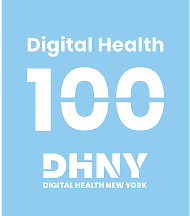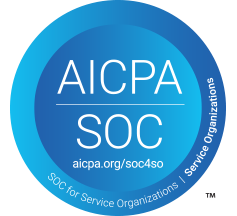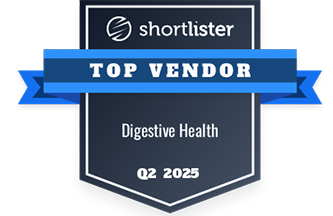
By Bill Synder
Introduction to GLP-1 medication
Although the first GLP-1 drugs were approved for chronic weight management in 2014, these drugs didn’t experience their meteoric rise in popularity until 2021. That’s when Novo Nordisk first got approval for semaglutide (Wegovy) (a stronger and more effective GLP-1) for weight management.
Even in the medications where weight loss is considered merely a “side effect” (including Ozempic and Mounjaro), we’ve seen widespread off-label prescriptions. Given how effective these drugs are at treating obesity, it’s no wonder.
These medications have other applications too. In March 2024, the FDA approved semaglutide (Wegovy) for adults with cardiovascular diseases, those struggling with obesity, and those who are overweight. Early studies suggest that it may also be helpful in treating addiction.
Unfortunately, these medications remain expensive, costing more than $16,000 per patient per year in some cases, and insurance coverage varies. Although Novo Nordisk recently announced a price cut for Wegovy (in response to competition from Eli Lilly’s Zepbound), costs remain high—with significant impacts on both self-funded employers and individuals interested in the benefits of GLP-1s.
Moreover, the side effects of these drugs can lead to hidden additional costs for employers in the form of absenteeism and lost productivity. In fact, a recent survey that we conducted with Harris Poll found that 86% of people who take GLP-1s experience side effects, including nausea, diarrhea, and constipation.
Read on to learn more about the rising demand for GLP-1s and discover how employers can better support their team members’ wellness journeys, without negatively impacting productivity.
The enormous demand for GLP-1s
Demand for GLP-1s quadrupled between 2020 and 2022. It continued to grow in 2023 to the point that the FDA added two name brands (Ozempic and Wegovy) to its drug shortage list. Our survey revealed that one group in particular has embraced these medications: 18-34-year-olds. Per our research, 20% of adults in this age group have taken a GLP-1 in the last six months. That’s more than twice the rate of adults aged 45 and older (9%) and 25% higher than the rate of all respondents (16%).
Given that less than 5% of the 18-to-34 year old set has diabetes, it’s safe to assume that many of the people taking GLP-1s in this group are doing so primarily for their weight management benefits. Unfortunately for employers though, the popularity of GLP-1 drugs likely comes with high costs attached—including those associated with the impact of these medications on employee performance due to their side effects.
The workplace impact of GLP-1 side effects
While semaglutide, tirzepatide, and liraglutide drugs are highly impactful for weight management, they’re not without side effects. Our survey found that, among the 16% of the population that had taken these drugs in the last six months, side effects occurred at the following rates:
- Headaches: 34%
- Gas: 33%
- Nausea: 28%
- Diarrhea: 24%
- Dizziness: 23%
- Constipation: 23%
All of these side effects have negative implications for employee productivity. If you’re interested in our survey’s more detailed findings, you can learn more by registering for our on-demand webinar. Otherwise, the high-level takeaway is that GI complications (like the ones listed above) were shown to lead to reduced productivity in the workplace.
In other words, about 14% of your overall workforce and 17% of your 18- to 34-year-old employees are on medications that are expensive both upfront (due to the drugs’ cost) and on the back end (due to the drugs’ side effects). Given the likelihood that GLP-1s will continue to grow in popularity, these numbers should be ringing alarm bells for employers seeking to manage their health care costs. Luckily, there are established avenues for avoiding unnecessary expenses, while still providing employees with the wellness benefits that they want and need.
Weight management alternatives to GLP-1s
One reason that GLP-1s are so popular is because they’re highly effective for weight loss. That’s significant, as in the U.S., weight management is an industry worth more than $190 billion—a number that speaks to the perpetual challenge that weight loss presents.
One way to make that journey less challenging is to provide adequate support to those undertaking it. That support can take many forms. For example, members of Cylinder, our comprehensive digestive health platform, have access to a dedicated team of GI-focused Registered Dietitians and Health Coaches across all 50 states. Each member is assigned to a Registered Dietitian that’s licensed in their state, who provides Medical Nutrition Therapy (MNT) and personalized meal planning to help support sustainable weight loss.
Cylinder members may also receive cognitive behavioral therapy (CBT) from our experienced Health Coaches. CBT has been shown to support weight management and maintenance through personalized strategies that focus on thoughts, feelings, and behaviors around weight, food, and lifestyle. While modifying behavior is always difficult, Cylinder aims to make it easier by supporting members with education, highly personalized care plans, and a team of GI-focused clinicians who work collaboratively throughout each member’s wellness journey.
Holistic care as an antidote to spiraling health care costs
When GLP-1 medications are indicated as the best choice for achieving an individual’s health goals, they should be paired with a holistic approach to wellness. This will help prevent any negative side effects from derailing an individual’s progress, while keeping overall costs in check.
Let’s explore how Cylinder’s holistic approach might fit into this overall strategy. Here’s an example: say one of our members is looking to lose weight as part of their overall wellness goals and is prescribed a GLP-1 medication by a physician on the Cylinder platform. After they start the medication, the member will work hand-in-hand with our dedicated, coordinated care teams to learn more about the drug’s potential side effects and receive personalized support for mitigating them (including Medical Nutrition Therapy to help reduce side effects and Cognitive Behavioral Therapy to develop new, healthier habits).
At Cylinder, we’ve found this multi-pronged support strategy is essential when treating those suffering from obesity and overweight with GLP-1 medications. Although GLP-1s themselves have shown to be highly effective for weight loss, that is only true when patients actually adhere to their treatment. Given the drugs’ many side effects and their impact on a patient’s overall well-being, quality of life, and productivity, nonadherence becomes a major risk when GI symptoms are not managed successfully. With this risk posing a significant barrier to successful treatment, it’s crucial that GLP-1 medications are incorporated into a holistic wellness strategy to ensure their lasting effectiveness.
There’s reason to believe that taking a more holistic approach might be exactly what employees are looking for too. Two-thirds of our survey respondents who reported occasional GI symptoms wished that their employer offered benefits or resources to help them manage those symptoms.
Rising costs are the symptom of a fragmented approach to health care
It’s natural for the latest scientific treatments to capture interest from the many people whose lives they can improve, but it’s also true that there are no magic pills.
The most impactful health care solutions will always be those that take the full person into account by offering resources that account for the many factors that affect health and wellness. That includes physiological symptoms, the emotional impact of those symptoms, access to information and resources, access to expertise, and more.
Conclusion
Although GLP-1s are the most exciting new medications for obesity on the market today, an organization should remain aware of both the tangible and hidden costs associated with their use. The employers who will be best able to manage the total costs of these drugs—and whatever expensive treatments emerge next—will be those that find ways to support their employees holistically and in the long term
Want more insight into the workplace impacts of GLP-1 medications?
Watch the on-demand webinar GLP-1s and Digestive Health, featuring Dr. Hau Liu, Chief Medical Officer at Cylinder.







